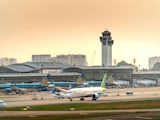A groundbreaking new study has found that the extreme conditions of space travel can accelerate ageing in human stem cells, raising crucial questions about astronaut health and long-term space exploration.
The research that has been published in Cell Stem Cell was conducted by a team from the University of California, San Diego, and led by biochemist Jessica Pham. The research focused on haematopoietic stem and progenitor cells (HSPCs), the cells responsible for producing and maintaining our blood supply. These cells were sent to low-Earth orbit aboard SpaceX resupply missions and remained on the International Space Station for up to 45 days.
The results were startling: in microgravity, the stem cells showed clear signs of stress, including DNA damage, decreased regenerative capacity, increased inflammation, and significant telomere shortening, an established hallmark of cellular ageing.
"Space is the ultimate stress test for the human body," said Dr Catriona Jamieson, a co-author from UC San Diego School of Medicine. "These findings are critically important because they show that the stressors of space - like microgravity and cosmic galactic radiation - can accelerate the molecular ageing of blood stem cells.Understanding these changes not only informs how we protect astronauts during long-duration missions but also helps us model human aging and diseases like cancer here on Earth. This is essential knowledge as we enter a new era of commercial space travel and research in low earth orbit."
One particularly concerning discovery was that the stressed cells lost the ability to suppress the 'dark genome' segments of junk DNA that are typically inactive. When these dormant areas reawakened, they posed a potential risk to immune function and cellular stability.
However, there was also a silver lining. When the space-exposed stem cells were returned to Earth and placed in healthy, youthful bone marrow environments, some of the ageing-related damage was reversed. This suggests that the harmful effects of spaceflight might be mitigated or even repaired under the right conditions.
"These short-duration spaceflight models of accelerated HSPC ageing may provide insights into terrestrial human ageing and age-related malignancies," the research team wrote.
As we prepare for longer space missions and commercial travel beyond Earth, understanding how space affects human biology is becoming more important than ever. This study not only highlights the challenges of spaceflight but also opens the door to new strategies for protecting astronauts and potentially slowing ageing on Earth.















